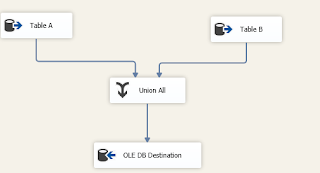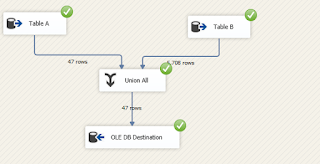Problem: What will happen
when NOT FOR REPLICATION is specified on a constraint
Solution:
If a table is published using replication, foreign key
constraints are automatically disabled for operations performed by replication
agents. When a replication agent performs an insert, update, or delete at a
Subscriber, the constraint is not checked; if a user performs an insert,
update, or delete, the constraint is checked. The constraint is disabled for
the replication agent because the constraint was already checked at the
Publisher when the data was originally inserted, updated, or deleted.
Example:
In this article, I am going to show we can create a foreign
key constraint with not for replication.
CREATE TABLE dbo.t1 (
c1 INT NOT NULL PRIMARY KEY
);
CREATE TABLE dbo.t2 (
c1 INT NOT NULL IDENTITY PRIMARY KEY,
c2 INT NOT NULL);
GO
ALTER TABLE dbo.t2
WITH CHECK
ADD CONSTRAINT FK_t2_t1 FOREIGN KEY (c2)
REFERENCES dbo.t1(c1)
NOT FOR REPLICATION
GO
OUTPUT:
Note: After NOT FOR REPLICATION is specified it will convert the constraint is
converted into to no check and it will not check for existing data in the
table, which makes it not trusted.
SELECT [name], type_desc, is_disabled,
is_not_trusted,is_not_for_replication
FROM sys.foreign_keys
WHERE parent_object_id = OBJECT_ID('dbo.t2');
GO
OUTPUT:
|
name
|
type_desc
|
is_disabled
|
is_not_trusted
|
is_not_for_replication
|
|
FK_t2_t1
|
FOREIGN_KEY_CONSTRAINT
|
0
|
1
|
1
|
































